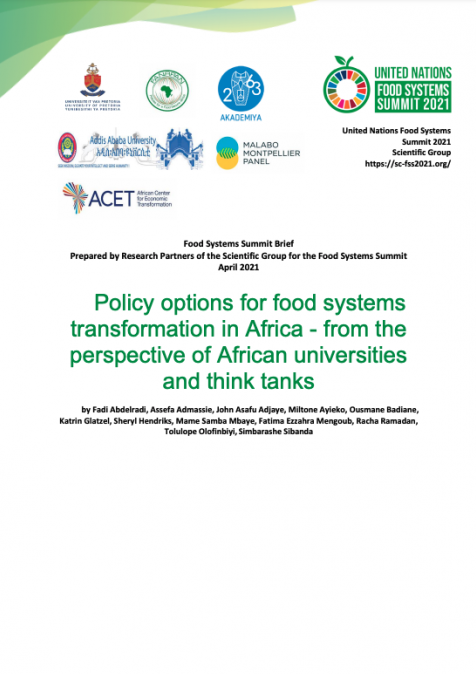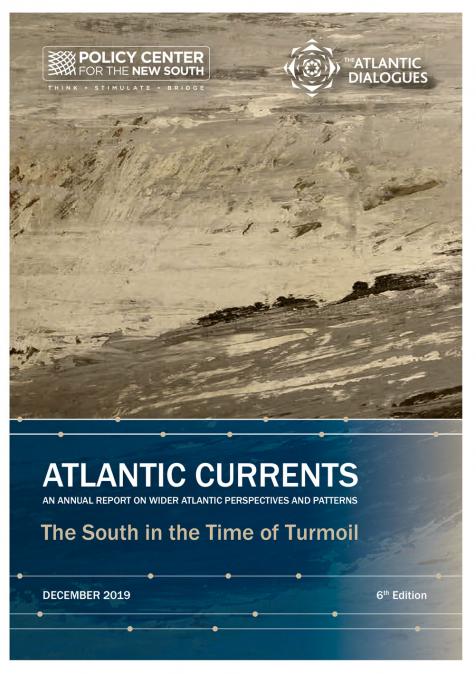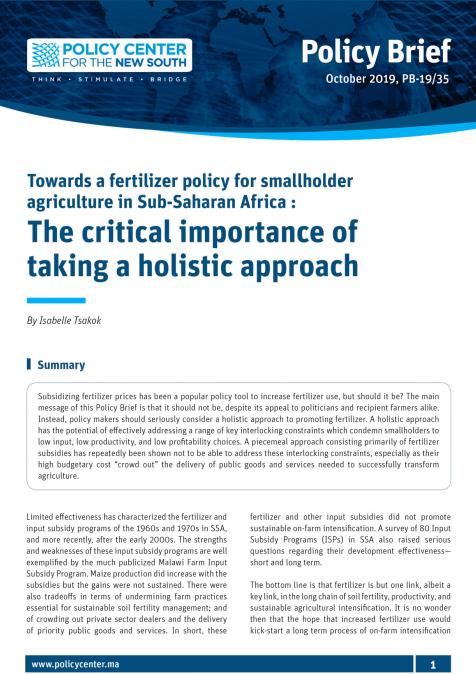Publications /
Opinion
The author is an alumnus of the 2018 Atlantic Dialogues Emerging Leaders program
Arable land per capita availability has been steadily decreasing over the last decades, from 0.5 hectare per capita in 1945 to 0.2 hectares per capita in 2016. Worldwide farmers have been, more or less, addressing the intensification challenge by incorporating new technologies, products, and techniques into their farming systems. The intensification challenge also implied a consolidation of the farming systems. Larger and better equipped farms were indeed able to better amortize the adaptation costs, enjoy higher bargaining power among the value chain, driving yield revolutions in many regions.
The average size of an Ohio wheat farm in 1960 was 64 hectares with an average yield of 2 tons. Today, it is 253 hectares and yields got up to 6 tons per hectare. If African farmers did not leapfrog to catch-up their western peers, Chinese farmers did, multiplying by 5 their outputs and getting close to western yield standards. As Fitzgerald-Morre and Parai explained: the Green Revolution was the technological response to a worldwide food shortage which became threatening in the period after World-War II (Parai, 1996). African regulators are expected to encourage a technological response to the challenge faced by a continent that represent 60% of the cultivable arable land and still spends 50 Bn$ on imported agricultural products. The landmark report published by (NEPAD, 2018) entitled “Drones on the Horizon – Transforming Africa’s agriculture” is encouraging Africa to cope up with the most advanced international standards to incorporate best-in-class technologies into farming activities. The report forms the basis upon which the AU Executive Council issued the Decision EX. CL/Dec. 986-1007 (XXXII), recommending all Member States harness the opportunities offered by drones for precision agriculture.
Finding a way to conciliate intensification and sustainability
From independence to the mid-sixties, India was unable to meet its needs. The seed revolution that took place in the sixties with huge production leapfrogs enables to spread crops such as the PITIC 62 rice variety that proved very resistant to south-east Asia pests and is today feeding 6 out of ten people in the world. Miracle seeds are however outstanding in the way they respond to large quantities of inputs (nitrogen fertilizer and water), without which they perform worse than indigenous varieties. In Indonesia, the application of fertilizer in rice production rose from 25Kg / hectare to 150Kg / hectare between 1975 and 1990. Africa cannot replicate these patterns that are questionable in term of environmental impact and needs to shape its own way. Technology is part of the sustainable intensification equation as the Africa Green Revolution Forum 2019 (AGRF) shows it through its ambition to leverage digital transformation to drive sustainable food systems in Africa.
Green revolution is based on genetically uniform monocultures that highly depend on crop protection products while traditional varieties are more resistant to local pests and diseases. Green revolution solved the short-term food shortage issue but generated many long-term issues such as soil degradation, water pollution, poisoned wildlife or decreased genetic diversity. African farmers are getting aware about these challenges and tend to privilege indigenous crops they have been cultivating for centuries such as teff in Ethiopia or sorghum in Senegal. Many African countries planted in the 70s cashew trees to fight desertification and it is today a cash-crop (D. Pasternak, 2012). Nigeria and Ivory Coast led these efforts in the early 70s and represent today 1/3 of the world production.
African start-ups are shaping the continent emergence
Africa with its propensity to leapfrog and adopt new technology as Rwanda with drone technology could not afford to follow the classical northern intensification story. The western farming model of individual and self-sufficient farming systems is not adapted or even accessible to Africa. European farms look more like subsidized small factories with considerable machinery capabilities and privileged access to the wealthiest markets. As Calestous Juma explains in The New Harvest (Juma, 2011), Africa needs to develop its agriculture following a new sustainable economic paradigm that is as collaborative and data-driven. A model that resonates with the sharing economy (Airbnb, Uber, Facebook). From resources and production to commercialization, agri-data analytics and innovative production systems will ensure sustainable intensification and leapfrog for African farmers. In Morocco, farmers started using SOWIT drone-based decision support tools to optimize their water and fertilizer use. Now they are using drone imagery even to decide on best time to harvest or track operations.
With 6 tractors per 1000 farmers (UNIDO, 2010), Kenyan farmers are among the less equipped farmers in the world but they will probably not get as equipped as French Farmers (1406 per 1000 farmers) since they will rely on smarter technologies such as the HelloTractor tracking system that enables farmers to efficiently share their resources. Thanks to favourable regulations, innovation leadership and capacity building, Africa can be the laboratory where is reinvented farming. With more than 1 billion $ invested in 146 African tech start-up in 2018 (Etcheverry, 2019), African tech hubs such as Lagos, Nairobi and Johannesburg are getting the right exposure and resources to fulfil the continent emergence.
Sources:
- D. Pasternak, A. S. (2012). Combating Desertification with Plants.
- Etcheverry, M. (2019). http://www.rfi.fr/afrique/20190327-start-up-fievre-investissements-gagne-afrique-partech-levee-fonds. RFI.
- Juma, C. (2011). The New Harvest: Agricultural Innovation in Africa.
- NEPAD. (2018). Drones on the Horizon - Transforming Africa's Agriculture.
- Parai, P.-M. a. (1996). THE GREEN REVOLUTION.
- UNIDO. (2010). Investment in Agricultural Mechanization in Africa.
------------------
1 : https://au.int/sites/default/files/decisions/33909-ex_cl_decisions_986-1007_e.pdf










